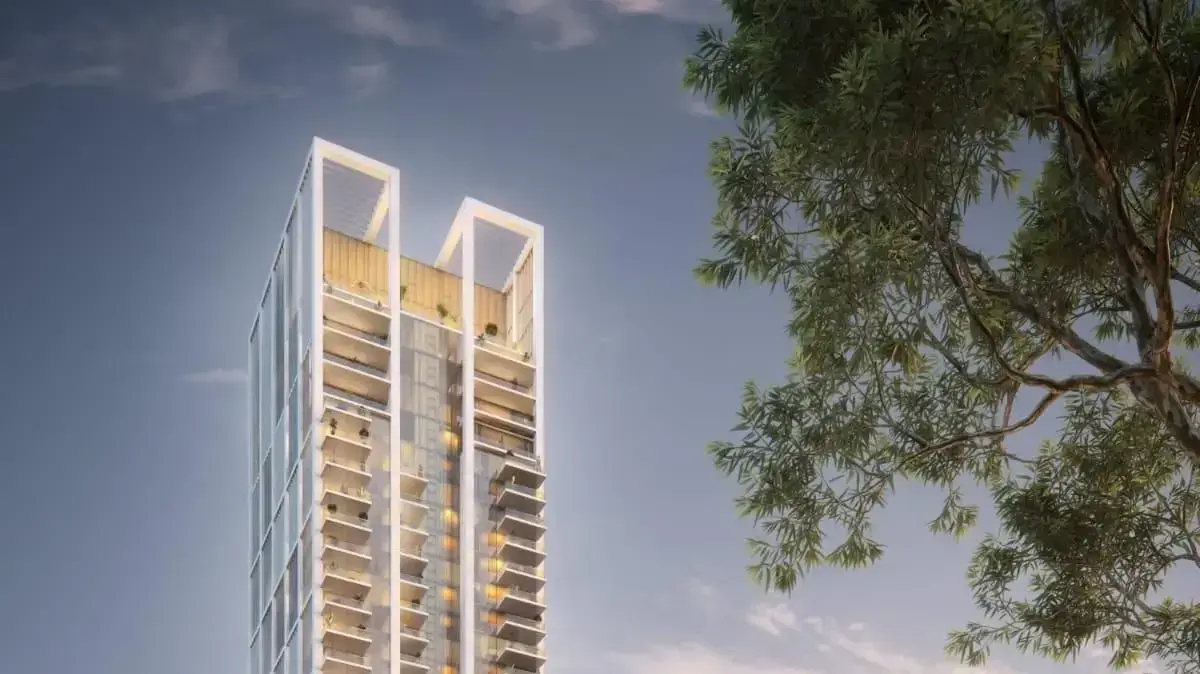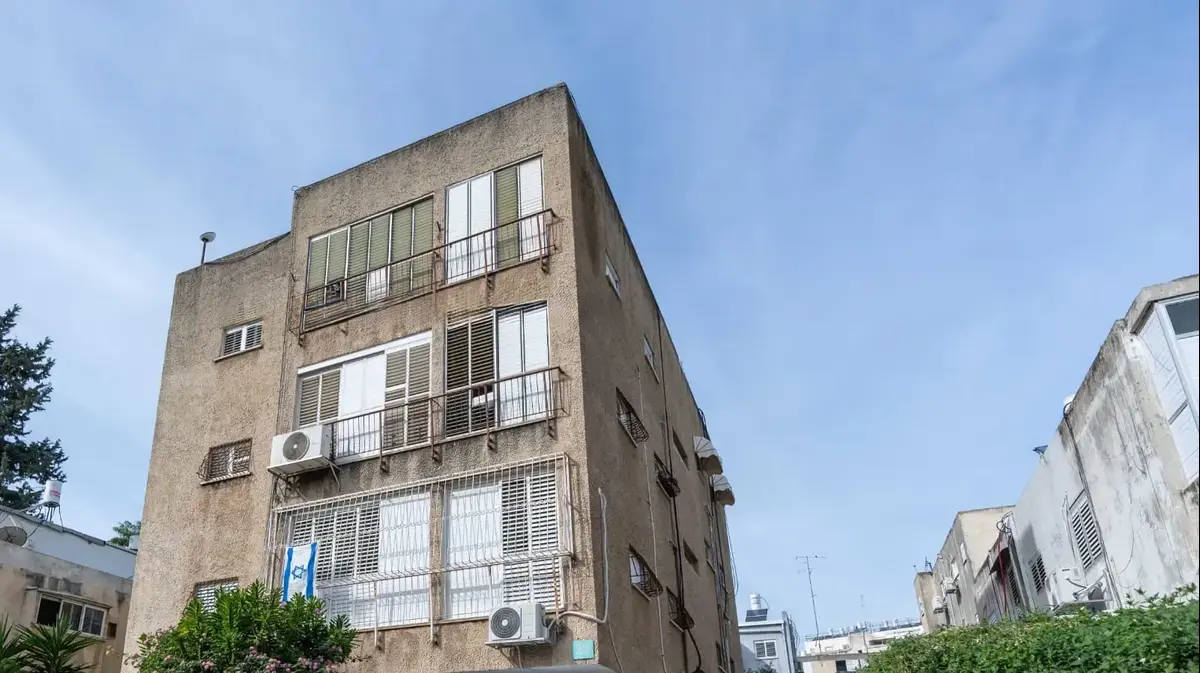Enlarge image
The Hajj Abdo family having tea in their new house
Photo: private
She apologizes.
Because she thinks her answer to the question of what's better after the big change sounds ridiculously small.
Hadija says she doesn't have to do so much laundry anymore.
Omer, her husband, says the greatest relief is the children's way to school, which is now safe.
Two streets, small intersection.
Before that, the daughters and son had to run through a forest with wild dogs.
What is different now.
The Hajj Abdo family has a house
found.
After a year and a half, they moved out of their tent: walls, roof, water, warmth.
No dirt, no mud, no washtub, in which cold hands had to be stuck several times a day, so that the children's clothes were mud-free again.
Omer and Hadija Hajj Abdo are a Syrian couple with six children who were bombed from their house in a village in the Idlib region during the last major offensive by ruler Bashar al-Assad in spring 2020.
They fled further north, like almost a million other Syrians, until shortly before the Turkish border, looking for a place to stay.
Displaced persons in their country, Syria.
Escape to Turkey, perhaps to Europe, is almost impossible.
The borders are tight.
Apartments are scarce in the region in the north because hundreds of thousands needed a new one at a stroke.
The Hajj Abdos lived in a refugee camp, in a makeshift arrangement.
DER SPIEGEL accompanied them from the start.
Omer, Hadija and the children regularly told us how they do it: to survive and not go crazy in the process.
Breaking the fast between tent walls.
Protect yourself from Corona.
Find a school that is still open.
Have money for food.
Don't miss the old life too badly.
We hadn't heard each other for a long time.
The last "Diary from Syria" is from the early summer.
A lot has happened in the meantime.
Much good.
In the summer, Father Omer finally found a new house.
Which changed almost everything.
It is the first time in the almost two years that we have been on the phone that Omer did not once mention the house from which she had to flee at the beginning of 2020.
Is that a new beginning?
Beginning of July 2021, Omer:
“A friend dropped a subordinate clause that a house was vacant in the old town of Azaz.
I immediately reported to the owner.
I trembled at it.
How much does this house cost?
Is it still available?
I asked that.
It costs $ 75 a month, he said.
It is still empty.
We moved in on July 1st.
That was the best day in years.
The house is small, one story, and only we live in it.
We look from the window onto a large market on the street.
Next to it is a water channel overbuilt with concrete.
Inside: a tiny hallway, from there 25 steps up to the first floor - two rooms, a small kitchen and a bathroom, separate toilet.
55 to 60 square meters, I guess.
There are a lot of cracks in the cement, the kitchen needs to be repaired, we need to invest money and time.
Before the war in Syria, nobody would have moved into such an accommodation.
Now the house is just very lucky. "
September 2021, Hadija:
“You should have heard the children once when Omer came home and said, 'We have a house.'
At first there was no running water, electricity or gas in the house. Omer had the lines mended. Every two weeks we fill up a large water tank on the roof. That costs 300 Turkish Lira
(around 20 euros)
. We have to calculate, of course. A tent in the refugee camp costs nothing, except that we had to buy it once. Now we pay rent every month. The landlord has already increased the price. It's $ 85 now. My husband doesn't say it, but I can sense that Omer worries that the rent could go up even further.
I go shopping in the street market.
My life just got easier.
Better.
I don't have to carry the meat and the groceries far.
I don't have to do so much cleaning and washing anymore.
Everything in the camp was full of mud for months.
The other half year everything was full of dust.
The children came home filthy from school.
I was just doing the washing and the housekeeping.
The question 'How do clothes dry in winter?' Crossed my mind.
I often resolved to have more love, more hugs for my children when I sent them to bed in the evening.
But if you toil all day, there is no strength left, not for love and not for feelings.
I have this power now.
I have conversations with my older daughters.
We cuddle on the mattresses that we have placed on the floor and covered with beautiful towels.
My husband and I talk to each other in peace again, we spend time together.
I have time to think about what I want.
Maybe start a little job?
I don't have a school education, but I am very good at handicrafts.
I would like to. "
October 2021, Omer:
“There wasn't a good school in the refugee camp;
I also paid extra tuition for my eldest daughter.
But for that she had to walk a long way.
And always go through a dark, wooded area where wild dogs gather.
She was very scared of it.
Now the children can all go to a good school nearby.
That makes me very happy.
Yes, stable walls and a roof over our heads affect our psyche.
We feel safer.
We know that there is still war going on in this country and more bombing in this area;
for me, however, the rockets have become background noise that no longer stresses me out.
I think the children have put on a bit too, I definitely have.
What rather stresses me are the many drug addicts you see on the streets now.
Drug consumption in the region is increasing.
Amphetamines and hashish are the cheapest.
And in times of crisis, people take action. "
November 2021, Fatima, the eldest daughter:
“I'm 15 now and go to secondary school.
It is not far away.
At camp I was scared when I was out alone in the evening.
Before kidnapping.
I've heard stories of increasing numbers of young women being kidnapped.
A nightmare!
We are all safe now.
My siblings say, do you remember how cold it was in the tent in winter?
That's correct.
We can heat here in the apartment.
We took our mobile oven with us from the camp.
It works much better inside.
What we could really need urgently would be a television.
There are so many people in the family, but we only have one smartphone that wanders through everyone's hands every day.
We have comfortable mattresses, during the day we use them as a sofa, at night we change towels and sleep on them.
I now help my mother around the house.
She says I am old enough.
She shows me things.
Cooking, cleaning, handicrafts.
I realize that I am a role model for my siblings.
But I want to continue learning and will do so.
Preferably something with computers.
There are courses here in town. "
December 2021, Omer:
“I'm glad that I get my salary in US dollars because I work for an international NGO.
Those who receive their money in Turkish Lira have a huge problem these days: The Lira is losing more and more of its value.
The course falls and falls.
I sometimes sleep badly at the moment.
I'm afraid that our landlord will raise the rent even more.
I'm afraid he'll want $ 100 soon.
That would get me in trouble.
I think a lot about the money we've been spending since moving.
The rent swallows a third of the income.
It's cruel to imagine that at some point it might no longer be enough.
That my six-month contract will not be extended.
That I have to bring my family back to a life in a tent.
Then I would have failed.
Giving my wife and children back their own beds, a living room and a dining table, that was the best moment in my life. "
Assistance: Mohannad al-Najjar
This contribution is part of the Global Society project
Expand areaWhat is the Global Society project?
Reporters from
Asia, Africa, Latin America and Europe
report under the title “Global Society”
- on injustices in a globalized world, socio-political challenges and sustainable development.
The reports, analyzes, photo series, videos and podcasts appear in a separate section in SPIEGEL's international department.
The project is long-term and is supported by the Bill & Melinda Gates Foundation (BMGF).
A detailed FAQ with questions and answers about the project can be found here.
AreaWhat does the funding look like in concrete terms?
The Bill & Melinda Gates Foundation (BMGF) has been supporting the project since 2019 for an initial three years with a total of around 2.3 million euros - around 760,000 euros per year.
In 2021, the project was extended by almost three and a half years until spring 2025 on the same terms.
Are the journalistic content independent of the foundation?
Yes.
The editorial content is created without the influence of the Gates Foundation.
Do other media have similar projects?
Yes.
Big European media like "The Guardian" and "El País" have set up similar sections on their news sites with "Global Development" and "Planeta Futuro" with the support of the Gates Foundation.
Have there already been similar projects at SPIEGEL?
In the past few years, SPIEGEL has already implemented two projects with the European Journalism Center (EJC) and the support of the Bill & Melinda Gates Foundation: the “Expedition ÜberMorgen” on global sustainability goals and the journalistic refugee project “The New Arrivals” within the framework several award-winning multimedia reports on the topics of migration and displacement have been produced.
Where can I find all publications on global society?
The pieces can be found at SPIEGEL on the topic Global Society.







